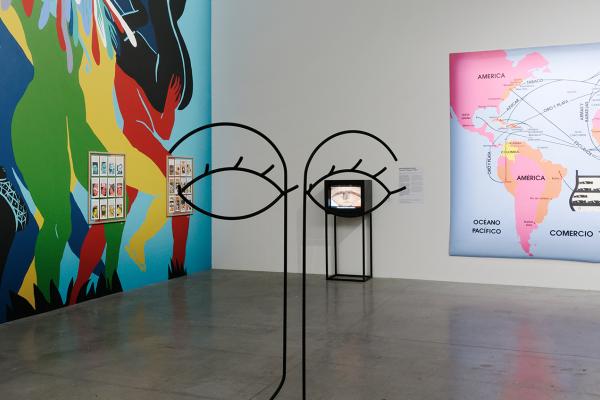
See the first large-scale museum exhibition dedicated to filmmaker Sarah Maldoror, a pioneer of African cinema and fighter for Black women’s empowerment.
Tricontinental Cinema explores Maldoror’s five-decade career as a filmmaker, tracing her involvement with Black liberation movements in France, Africa, and the Caribbean. Through an immersive, multisensory landscape of films, photographs, poetry, and letters, the exhibition invites you to experience the full scope of Maldoror’s practice.
Recognized as "the mother of African cinema," Maldoror completed more than 45 shorts, documentaries, and feature films for both the screen and television before her death in 2020. Many of these works, including her searing anti-colonial drama Sambizanga (1972)—one of the first features made in Africa by a Black woman filmmaker—rewrite the rules of films focusing on resistance and rebellion, often casting women as protagonists in movements dominated by men. Other films chart Maldoror’s creative connections with key artists and intellectuals in the Afro-Caribbean diaspora, including Surrealist artist Wifredo Lam and Négritude poet Aimé Césaire, as well as jazz musicians like the Art Ensemble of Chicago.
Tricontinental Cinema extends this circle of conversations and collaborations to the present. The exhibition includes several large-scale works by contemporary artists, including a monumental fiber sculpture by renowned French and Canadian artist Kapwani Kiwanga and an installation by American sculptor Melvin Edwards. It also features a newly commissioned mural, painted on-site, from Paris-based artist Maya Mihindou. Framing Maldoror’s films and archives, these works form a constellation of Black and Afro-Surrealist practices while amplifying the continued resonance of her work today.
https://wexarts.org/exhibitions/sarah-maldoror-tricontinental-cinema
